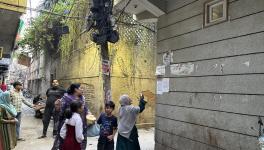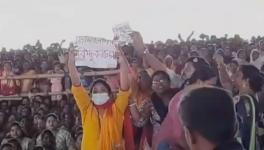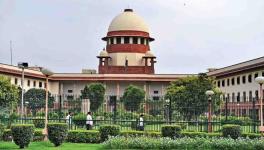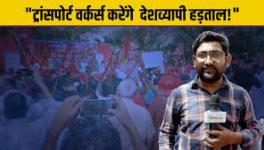Restrictions on Fundamental Rights to Meet Public Health Crisis: How SC Used Test of Proportionality to Find Them Legitimate

Image credit: Bloomberg Quint
In Gujarat Mazdoor Sabha vs. State of Gujarat (2020), the Supreme Court had decried the state’s tenuous claim of a public health emergency to dilute welfare conditions in labour laws. In its recent decision in Akshay N. Patel vs. Reserve Bank of India, however, the same judge, who authored the earlier judgment, Justice D.Y. Chandrachud, has reached the opposite conclusion that the state’s restrictions to meet a public health emergency could be legitimate if warranted by the test of proportionality.
In Akshay N. Patel, the appellant is a Managing Director of a firm involved in the manufacture and trade of pharmaceuticals and PPE products. During the COVID-19 pandemic, the appellant obtained an international MTT (Merchanting Trade Transactions) contract, under which he acted as an intermediary between a supplier in China and a buyer in the United States, for the sale of PPE products. He approached his authorised bank requesting documents that were essential for the execution of an MTT contract, post which the bank informed him about the denial of his permit for the contract, by the Reserve Bank of India (RBI), based on Clause 2(iii) of the Revised Guidelines on MTT.
The Supreme Court observed that balancing individual rights against measures adopted to combat the public health crisis must continue to satisfy the test of proportionality.
The appellant first filed a writ petition under Article 226 of the Constitution of India before the High Court of Madhya Pradesh, stating that the said clause of the 2020 MTT Guidelines was unconstitutional as it is in violation of the appellant’s right of carrying out business under Article 19 (1)(g) and the right to life and livelihood under Article 21 of the Constitution.
The contentions before the Court
The RBI stated that the Union of India (UoI) prohibited the export of PPE products from India by issuing several notifications under Section 3 of the Foreign Trade (Development & Regulation) Act, 1992. The RBI had absolutely no jurisdiction for the exemption of products from its application since only the UoI can determine the nation`s foreign trade policy (FTP).
The appellant had argued that the export of PPE was banned for the preservation of stocks in India during the pandemic whereas MTTs in PPE products did not affect the domestic stocks because goods traded were from outside India. Hence, the clause stands arbitrarily and violates Article 14 of the Constitution. It was also pointed out that there is no physical entry and exit of goods in the territory in an MTT and India only serves as an intermediary in the transaction between the two foreign nations.
RBI’s contention was that MTTs are analogous to such transactions and cause an outflow of foreign exchange during the import leg, and an inflow of foreign exchange during the export leg of the MTT, affecting India’s foreign reserves which the RBI manages with the UoI’s FTP. Hence MTTs cannot be permitted for goods whose import/export is prohibited by the UoI under the Foreign Trade Act, it was argued.
It was also argued that the export of PPE products was prohibited to ensure the adequacy of stocks in the country during the COVID-19 pandemic, validating the prohibition of MTTs of such products because when any Indian entity facilitates such similar trade practices with other nations, it takes away possible stocks of India in the world market.
The decision by the Court
The bench, relying on a previous judgment delivered by a nine-judge bench, held that a corporation is not a “citizen” under the Constitution and cannot claim an infringement of its rights under Article 19(1)(g), as this fundamental right is only available to citizens and not to juristic persons.
The court rejected the appellant’s arguments on two grounds: first, MTTs in PPE products contribute to trade between two foreign nations, reducing the available quantity of PPE products in the international market that India could have acquired. Second, the UoI’s policy to ban the export of PPE products is to ensure the product’s non-tradability during the COVID-19 pandemic, highlighting a clear policy choice.
The court also made multiple references to the judgment in the case of K.S. Puttaswamy vs. Union of India (2018), which prescribed a proportionality analysis for determining violations of fundamental rights under Part III of the Constitution.
In the instant case, the bench held that the RBI has demonstrated a rational nexus in the prohibition of MTTs in respect of PPE products and the public health of Indian citizens. The critical links between FTP and MTTs have been established by the respondents. Facilitating MTTs in PPE products between two distinct nations may prima facie appear as having no bearing on the availability of domestic stocks. However, the RBI has carefully established the connection between the use of Indian foreign exchange reserves, MTTs, and the availability of domestic stocks, the bench reasoned.
The bench stressed that balancing individual rights against measures adopted to combat the public health crisis must continue to satisfy the test of proportionality. More importantly, it distinguished its previous decision in Gujarat Mazdoor Sabha v. State of Gujarat, in which it had quashed restrictions on labour rights, imposed by a state Government. In this case, however, it held that democratic interests that secure the well-being of the masses cannot be judicially aborted to preserve the unfettered freedom to conduct business, of the few. The measure was validly enacted, in pursuance of legitimate state interest and did not disproportionately impact the fundamental rights of the appellant, the bench concluded.
(Abhinandita Biswas is a penultimate-year law student at Adamas University, Kolkata, with an interest in human rights and criminal law. The views expressed are personal.)
Get the latest reports & analysis with people's perspective on Protests, movements & deep analytical videos, discussions of the current affairs in your Telegram app. Subscribe to NewsClick's Telegram channel & get Real-Time updates on stories, as they get published on our website.
























